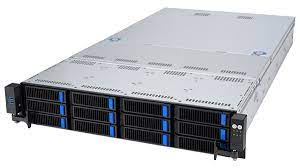Unleashing the Power of Server Technology: A Comprehensive Guide
The Role of Servers in Modern Computing
Servers play a crucial role in the infrastructure of modern computing systems. These powerful machines are designed to store, process, and deliver data and services to client devices across networks. From websites and applications to databases and email services, servers are the backbone of today’s digital world.
Types of Servers
There are various types of servers, each serving specific functions:
- Web Servers: These servers host websites and web applications, responding to client requests for web pages.
- Database Servers: Database servers store and manage data, allowing users to retrieve and update information efficiently.
- Email Servers: Email servers handle the sending, receiving, and storage of email messages.
- File Servers: File servers store files that can be accessed and shared by users on a network.
- Application Servers: Application servers run software applications and process user requests for dynamic content.
The Functionality of Servers
Servers are designed to perform specific tasks efficiently. They have high processing power, memory capacity, and storage capabilities to handle multiple client requests simultaneously. Additionally, servers often run specialised operating systems and software tailored to their intended functions.
Server Security
Security is a paramount concern when it comes to server management. Servers store sensitive data and provide critical services, making them prime targets for cyber attacks. Server administrators implement security measures such as firewalls, encryption protocols, access controls, and regular software updates to protect against threats.
The Future of Server Technology
As technology evolves, so do servers. The future of server technology is focused on scalability, virtualisation, cloud computing, and automation. Virtualised environments allow for efficient resource allocation across multiple virtual machines on a single physical server. Cloud computing enables flexible access to resources over the internet. Automation streamlines server management tasks through scripting and orchestration tools.
In conclusion, servers are essential components of modern computing systems that enable the seamless delivery of data and services across networks. Understanding the role of servers is key to optimising performance, security, and scalability in today’s digital landscape.
Five Essential Tips for Maintaining Server Security and Performance
- Regularly update your server’s operating system and software to ensure security patches are applied.
- Implement strong password policies and consider using two-factor authentication for added security.
- Monitor server performance regularly to identify any issues or potential bottlenecks.
- Set up regular data backups to prevent data loss in case of hardware failure or cyber attacks.
- Restrict access to sensitive server resources based on the principle of least privilege.
Regularly update your server’s operating system and software to ensure security patches are applied.
Regularly updating your server’s operating system and software is crucial to maintaining a secure computing environment. By applying security patches and updates promptly, you can protect your server from vulnerabilities that could be exploited by malicious actors. Keeping your server software up to date not only enhances its security posture but also ensures optimal performance and functionality. Make it a priority to stay vigilant with updates to safeguard your server and the data it processes from potential threats.
Implement strong password policies and consider using two-factor authentication for added security.
To enhance the security of your server, it is advisable to implement robust password policies and consider integrating two-factor authentication for an additional layer of protection. Strong password policies, such as requiring complex passwords with a combination of letters, numbers, and special characters, can help thwart potential cyber threats. Two-factor authentication adds an extra level of security by verifying user identity through a combination of something they know (a password) and something they have (such as a mobile device). By implementing these measures, you can significantly reduce the risk of unauthorised access to your server and safeguard sensitive data effectively.
Monitor server performance regularly to identify any issues or potential bottlenecks.
It is crucial to monitor server performance regularly to proactively identify any issues or potential bottlenecks that may impact the efficiency and reliability of your system. By keeping a close eye on key performance metrics such as CPU usage, memory usage, disk I/O, and network traffic, you can detect anomalies early on and take corrective actions to prevent downtime or degraded performance. Regular monitoring allows you to optimise resource allocation, troubleshoot problems promptly, and ensure that your server operates smoothly to meet the demands of your users and applications.
Set up regular data backups to prevent data loss in case of hardware failure or cyber attacks.
Setting up regular data backups is a crucial tip for server management to safeguard against potential data loss due to hardware failure or cyber attacks. By implementing a robust backup strategy, organisations can ensure that critical information is securely stored and easily recoverable in the event of unexpected incidents. Regular backups not only provide peace of mind but also serve as a proactive measure to mitigate the impact of unforeseen disruptions on business operations. Prioritising data protection through scheduled backups is an essential practice for maintaining the integrity and continuity of server systems in today’s digital landscape.
Restrict access to sensitive server resources based on the principle of least privilege.
To enhance the security of your server infrastructure, it is essential to restrict access to sensitive server resources based on the principle of least privilege. This principle advocates granting users only the minimum level of access required to perform their specific tasks, reducing the risk of unauthorised access and potential security breaches. By implementing strict access controls and permissions, you can safeguard sensitive data and critical services on your server, ensuring that only authorised individuals have the necessary privileges to interact with valuable resources.



